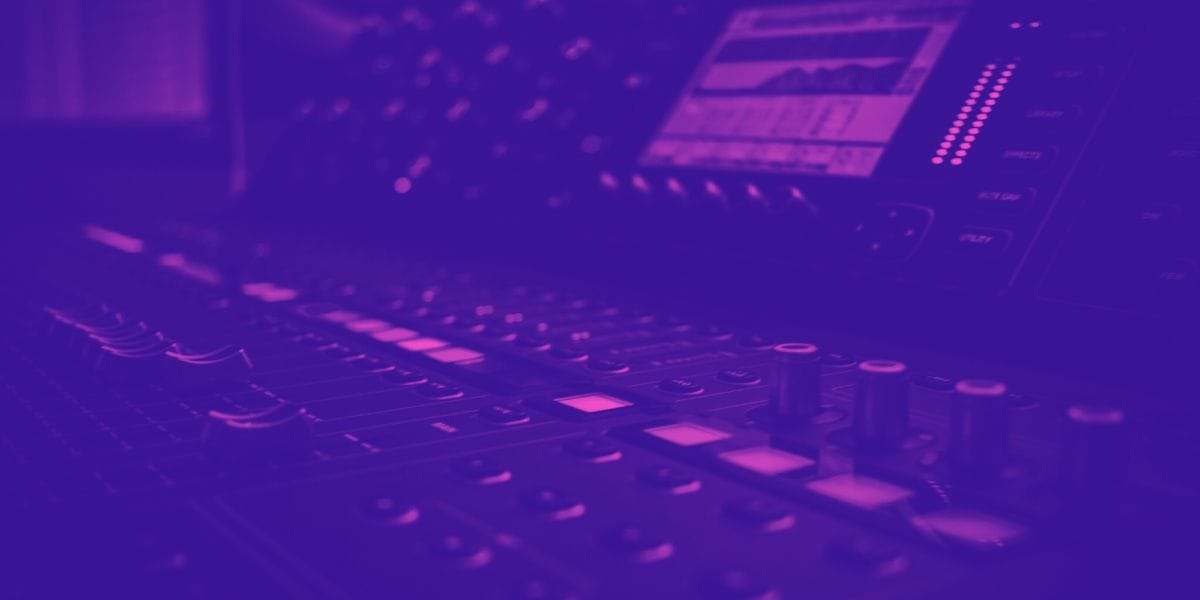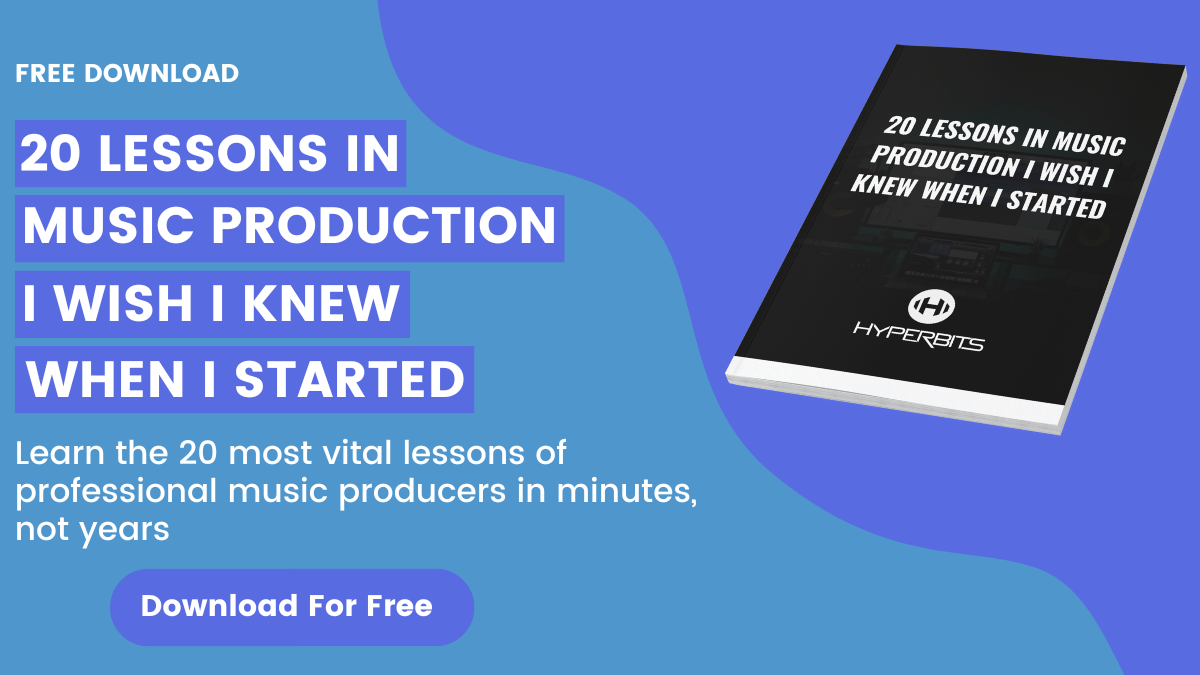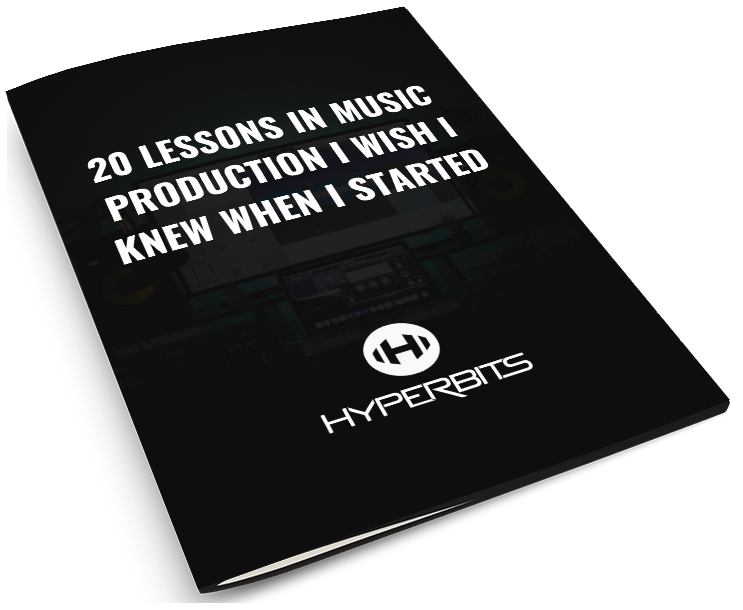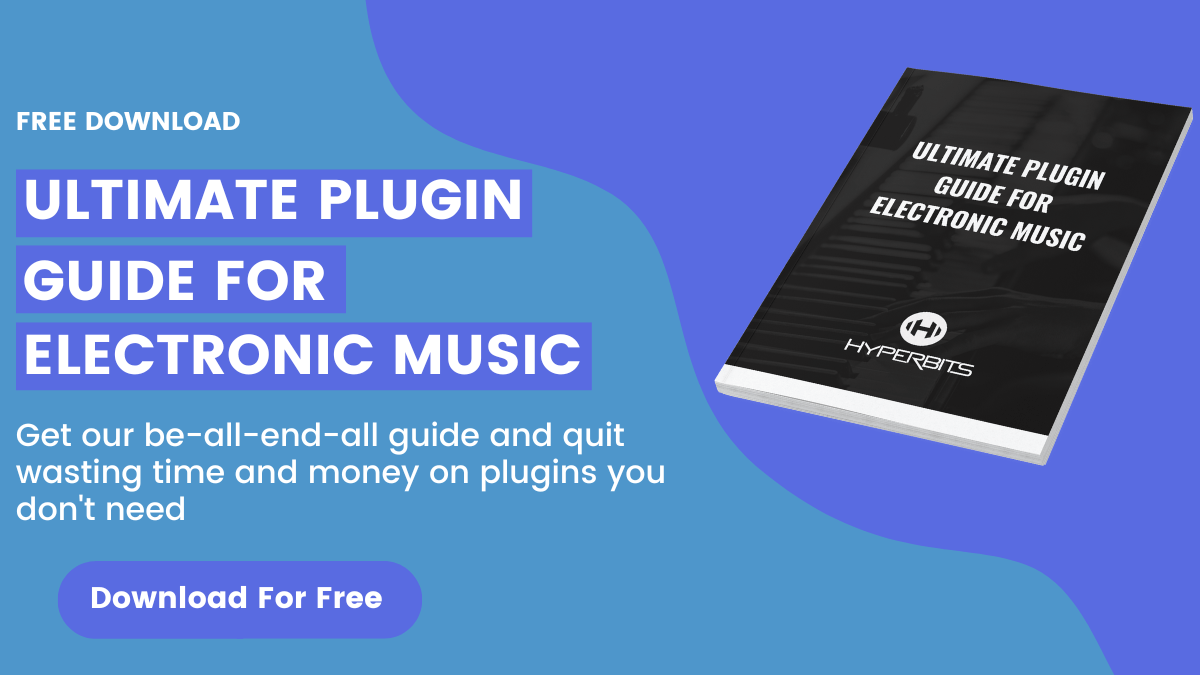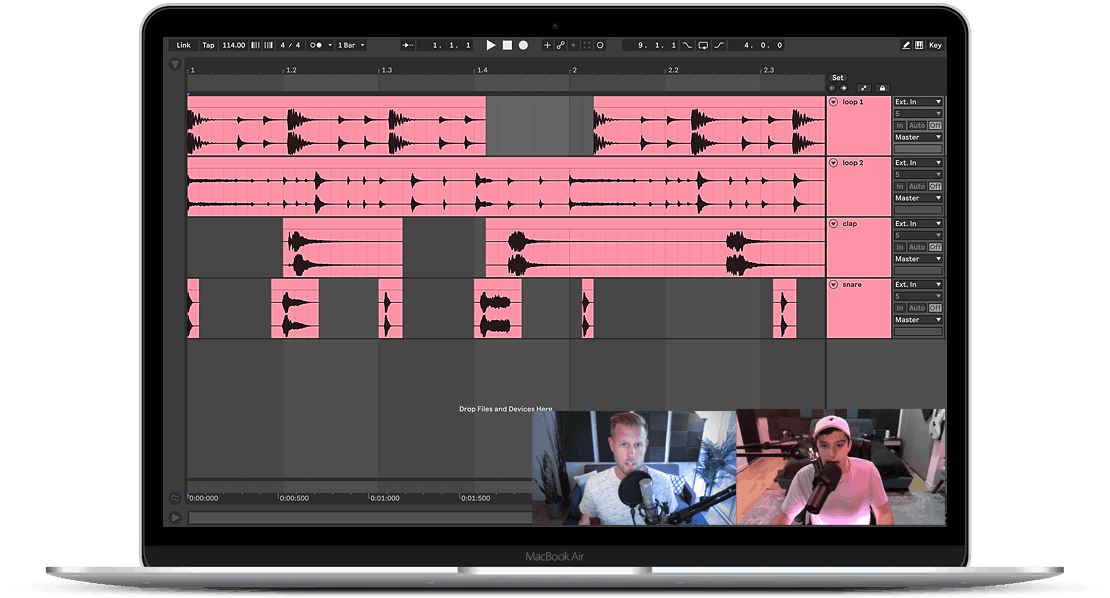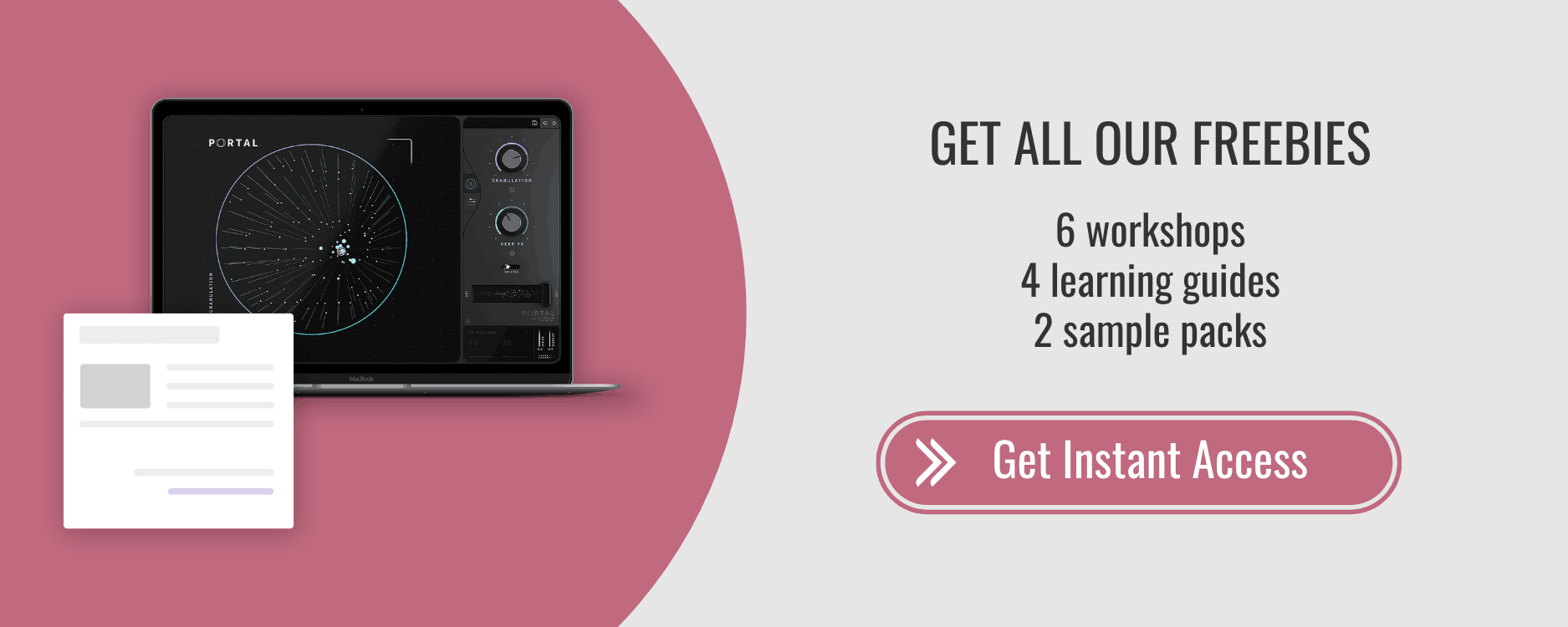103 Music Production Tips: Mixing, Mastering, Sound Design, Composition & Mindset
"When the ideas are coming, I don't stop until the ideas stop because that train doesn't come along all the time."
— Dr. Dre
Ahh, 103 music production tips coming your way...
But first, bear with me. You see, much in the way that love, in real life, is not some perfect romantic Disney fairytale, music production is NOT just about headlining festivals, signing Billboard #1s, and DJing late-night after parties surrounded by models in Ibiza.
In reality, music production is a grind. It's a true struggle — a beautiful pursuit that pairs a musical art-form with the technicalities of science.
And I'm not going to lie, I love it.
When things are clicking, sitting down and creating or engineering music is one of the most rewarding thrills I get to experience on a daily basis.
Of course, there are some downsides to music production as well.
After all, music production is:
• Very time consuming
• Extremely difficult
• There's a huge learning curve
• It can be isolating
• Difficult to break through
• Even more difficult to get a job/make money in the field
• Tough to achieve notoriety (at least at first)
But nevertheless, there is still hope…
And since I’m in this whole online education field, I thought I would bestow some serious wisdom in my old age...
Process People vs. Results People
Process people fall in love with the journey.
When they cook dinner, they take their time. After all, a proper meal with great flavor can't be rushed.
Results people get impatient, and you guessed it - fall in love only with the results. They don't even cook dinner because they want their food right now. They end up getting take-out regardless of how much they are blowing through their savings.
So, for the process people....for the producers out there who understand it might take years to fully digest everything this blog post has to offer, I thought it would be fun to share 103 music production tips, techniques & strategies.
This article took me a few days to write, but about 10 years to acquire the knowledge and experience necessary to write it. Plus, with the benefit of hindsight being all 20-20, I've learned how to cut through the majority of those problems.
So sit back, dig in and hopefully focus on learning, utilizing and implementing these music production tips as a continuation of your ever-evolving music journey.
Plus, if we want to make it in this business, we have to fall in love with the process. So, here goes...
MINDSET
1. Finishing music is the #1 most important goal
Put Finishing Music above everything. Set deadlines. Make bets with friends. Do whatever it takes to make sure that you are finishing at least one song every week or two. If you are slower than that, the reality is that you are not ready to do this full-time.
2. Get comfortable with stealing
Every song you will ever listen to from this moment forward is an opportunity to steal. Think about that. Learn to listen to music with an unquenchable desire to sample sounds.
Learn 10 ways for music producers to actually steal like an artist.
3. Learn & progress at your own pace
Everything...literally everything in life happens at your own pace. Don’t worry about the artist who has been producing only a fraction of the time as long as you, and are seeing better results.
This is going to keep happening. Keep your head down and get to work. Don't pay attention to that energy. The grind is real, and no one needs to be comparing themselves to other people time and time again.
Bonus tip: for everyone caught up in what other people think, consider this - the average person only has 10 people cry at their funeral. Yep, only 10. Are any of those people that you are stressing about going to be one of those 10? I bet not. So move on and direct that energy elsewhere.
4. Persistence beats talent in the long term
No one was born great. Talent isn’t given, it’s earned. So work hard, but make sure to accept that the race is super long. Don’t burn yourself out by working until your eyes bleed every night.
5. Be open to constructive criticism & feedback
Getting consistent, trustworthy feedback on your music is going to be one of the most important factors in polishing your sound. Without that magic combination of feedback + actual implementation, progress is extremely hard to come by. It’s hard at first, but learn to not take constructive criticism personally. On the other hand, if someone says ‘this sucks’ on your Soundcloud, you have every right to troll them (but I would recommend ignoring them).
6. Writer’s block isn’t real
Sorry. Writer's block just isn't a thing. The real problem is getting started. Creating consistent, daily habits. Too tired to go for a run? Just start, you'll get into it. Don't think you'll have fun at some social event? Just start getting ready. Don't want to make music? Just open your DAW and cycle through a few samples...
7. Listen to a ton of different music
When it comes to longevity and fueling musical ideas over and over again, I truly believe that listening to music outside of your electronic niche is not only important but 100% necessary. Without inspiration from widely different genres, electronic music can become very repetitive. Potentially even dull. Take your favorite elements from different genres and blend and mold them into something completely your own.
8. Spend on knowledge, not equipment.
When it comes to equipment, an article over at Pro Audio Files said it best…
There are four tiers of audio equipment:
1. Cheap
2. Solid enough for professional use, Consumer level pricing.
3. “Pro” which is marginally better than number 2.
4. Expensive.
Tier two is good enough. Ignore the rest. When you make a living off of music you can splurge.
Instead, spend on education. For example, if you spent $100 to learn how to truly use compression, that will be more valuable than any actual compressor plugin you ever purchase. I can say with the benefit of hindsight and absolute clarity, the thousands of dollars I spent at an audio school was more valuable than any equipment I ever bought.
9. Be yourself / stay who you are
It’s a cliche at this point to tell someone to ‘be yourself’ but hey, in music, this is equally as important. It’s easy to get caught in the bubble of trying to suck up to an A&R or trying to impress your fans or trying to sign with a label. At the end of the day, if you make music for other people, you will burn out. It has to come from a place inside of you. So there it is...stay true to yourself and don’t hop on every bandwagon.
10. Get used to rejection (or worse, getting ignored)
There are millions, literally millions of producers, all trying to carve out their own space in an extremely over-saturated market. You will get rejected. You will get ignored. It's completely cool.
11. Explore multiple revenue streams
If you haven't noticed yet, this article is going way beyond your average music production tips. You see, the average millionaire has 7 different revenue streams. If you’re successfully making a living off of music, you most likely are generating an income from varying fields. Most artists aren’t making enough solely off sales of their music, so they: play shows, offer engineering services, place music in TV or film, put together courses, take on ghost production, etc.
12. Be prepared to work your ass off
I’m not going to lie, there are significantly easier ways to make money. Music is a tough industry and if you want to make a splash in it, be prepared to work hard. Just don’t fall into the trap that working more is always the answer.
13. Collaboration is everything
Allowing another mind to come in and help you make music is extremely important. Not only does this help you grow your skill set, but it also is extremely fulfilling and even fun.
14. Friends in the industry go a long way
Be super open to creating a community. Making friends in the music industry has too many benefits to list. Not only can you get great feedback, but you can work with each other to maximize exposure and attack the difficult and tricky aspects of the music industry together. For me, starting the Hyperbits Masterclass has created hundreds and hundreds of new connections and friends — both in the industry and by connecting with students.
15. You have already “made it”
There will always be a next level, a new challenge, and there is no threshold that you need to cross in order to be “legit”. Just by starting and doing your best, you have accomplished your goal of being a real music producer.
16. Every day doesn’t have to be your best day ever
There will be some great days, and some not-so-great days, some great weeks, and some not-so-great weeks. If things aren't clicking on a given day, don’t stress about it and try it again tomorrow. I've said it before and I'll say it again, the race is long...
17. Equipment isn’t everything
Sure, sometimes the expensive stuff sounds great, but you can make incredible sounding music, with a tiny budget and cheap-gear, in an untreated room. Stop creating problems for yourself by thinking that some new toy will fix your music - the truth is, even if it does help, it will be minimal.
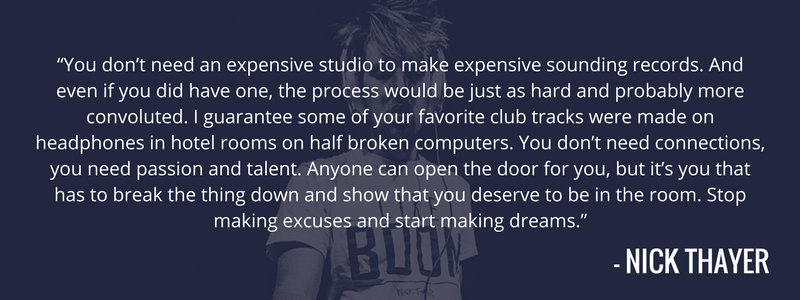
ORGANIZATION
18. Start & maintain a favorites folder
Every time you finish a song, take 10 minutes and save your favorite sounds into one organized place. Keep a favorites folder of your absolute best samples. This speeds up workflow and saves you a ridiculous amount of time in future projects.
19. Color code your projects
Color coding is everything. It helps your eye differentiate between types of groups. It also can spark inspiration and creativity when you’re finally not looking at a wall of midi-green or audio-blue (at least in Logic Pro).
20. Organize your plugins
Most DAWs will let you rearrange the way your plugins are displayed. The goal here is to preserve quality over quantity. Do you really need all 20 compressors you own accessible at all times? Choose a few great sounding plug-ins for each function – you’ll find that your workflow becomes much more fluid and effortless.
On the topic of plugins, here is an awesome plugin round-up that covers a ton of different choices in various categories. It will help you get an idea of what plugins are on the market and will allow you to narrow-down your choices to find the ones best for your needs.
If you'd prefer to stay closer to home you can check out our own Ultimate Plugin Guide here.
21. Name your tracks, channels and buses
Color coding isn’t enough. Make sure to name your tracks. This might seem annoying at first, but eventually, it will become second nature, and you can have a lot of fun with this. If a bass sound actually sounds like a fart to me, I’ll label it ‘Fart Bass’. I know, I know... I’m an adult and this shouldn’t entertain me as much as it does, but hey, it does. So whatever. Moving on...
22. Use templates
Some people take templates way too seriously, but they do help, a lot. I like to keep things simple. I have one composition template and one mastering template. For composition, I’ll include my reverb buses, one audio track, and one software instrument track, and that’s it. For mastering, I’ve got most of the chain already set with every plugin set to the default settings.
23. Move old projects off of your internal drive
The extra hard drive space will come in handy for your computer's general health, speed and there's the added benefit of organization.
24. Don’t be afraid to delete muted tracks from your projects
You really don’t need that old chord progression or the original kick drum you tried to use in your project? Do a Save As, create a copy of your project, and delete all the stuff you aren’t using anymore to move forward with a cleaner slate.
25. Tag your samples by key
It can be a huge time-waster to figure out the keys of samples or to have to re-tune drums in every project. Save your samples with key tags to expedite this in future projects. And if you aren’t already, make sure to tune your drums!!!
26. Back your shit up
Imagine losing everything you’ve ever worked on. Yep.
27. Save your presets
When it comes to music production tips that actually work, here's a big one that cannot be understated. It’s super easy to save presets and reuse them on different tracks. Just like creating a favorites folder for your samples, this will save tons of time and energy so you aren’t always searching for the same sounds over and over and over again.
28. Back your shit up again.
Seriously..
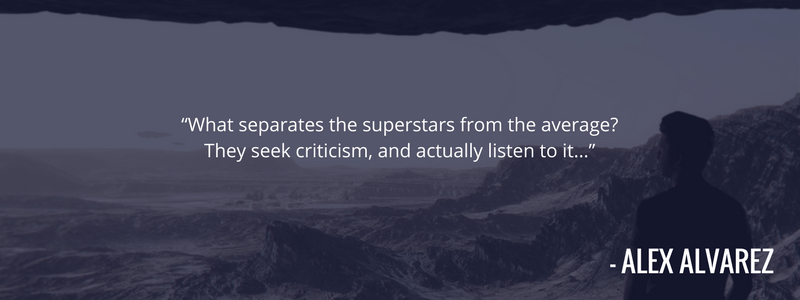
WORKFLOW
29. Put yourself through a shortcut crash course
Spend one day of your life doing nothing but learning shortcuts in your DAW. Spend the next few weeks implementing them. Keep them fresh in your mind, on the wall in front of you, or on the desktop at first. Eventually, those shortcuts will become second nature. It will pay off every day, time and time again.
Speaking of DAWs (digital audio workstations) here is a bonus tip: It truly doesn't matter what DAW you use. If you've started in one, you should most likely stick with it.
If you haven't picked yet, click here for the most extensive guide for picking an appropriate DAW that I know of.
30. The piano roll is your best friend
And while we’re at it...spend one day of your life learning everything about the piano roll in your DAW. The ability to fly while working in midi will be one of the biggest time savers in the long term - I can’t stress enough how helpful this is.
To learn more about how to make pianos sound amazing, click here.
31. The Cure to ‘Loopitis’
Avoid the 8-bar-loop (also known as ‘Loopitis’) by following the structure of a reference track to a tee. Yes, it’s that easy. Drop the reference track directly into your DAW, and voila - you’ve got an entire map & guide to follow for your song. And for all the haters out there, relax - you can always stray from this later on as you get more comfortable.
32. Sample hunt with the search bar
When searching for samples use the search bar. You don’t always need to go directly into one sample pack to grab a sound. Instead, search for the sound you want, and then organize the results by file size. This will (roughly) organize the sounds by length or decay which can be extremely valuable.
33. Don’t start with the details
Music is a lot like creating a sculpture. In a sculpture, you would never start with the details of the hand, right? Or the eyelashes of the face. Similarly, in music, you would never start by fine-tuning your snare drum, or perfectly mixing your synth lead. In sculpture, you’d create the overall shape first, the body, and then work into the details. Same with music - start with a loop, create some structure and once you have a full-flushed out song, then you can start to worry about the details, transitions and special moments.
34. Work where you feel most comfortable
You don’t always have to be in front of a computer to work on electronic music. For example, if you need to write some vocals - maybe go to a different part of your house or even a park. Same goes for melodies. It helps to play an instrument but we can all sing or hum a little bit, and we can do that anywhere.
35. Treat music production like a job
My tolerance for slackers in the studio is officially zero. I’ve worked with too many lazy and distracted producers who are constantly checking their phones. If you’re serious about making music, treat it like a job. Turn off your phone. Get off social media. Clear your schedule. Turn off the internet. Minimize distractions and your work will flourish.
36. Don’t forget to live life
Sitting in the same room every single day, looking at the same computer screen can be soul-sucking. Make sure to continue to experience life, regardless how passionate you are about music production. Think about it: it’s your vigor and energy towards life that got you to become passionate about music production in the first place. So continue to make friends, travel, discover new cultures, take in and absorb the arts, anything that gets you out of that damn room once in a while and keeps you excited about life.
37. Desktops are significantly more enjoyable than a laptop
At the end of the day, you’re going to be spending a lot of time in front of a computer. You might as well get the bigger screen and additional processing power. It’s just a better experience. Sure, you aren’t as mobile but the benefits definitely outweigh the cons.
38. Watch masterclasses
Nothing beats learning new techniques from other successful producers. YouTube channels like Future Music can be a great resource for watching in the studio sessions featuring most of your favorite producers.
39. Don’t be afraid to change things up
Know what you’re good at (in fact, own what your good at) but don’t be afraid to try new things. Systemizing music production too much can lead to a loss of creativity and take the spice and fun out of the art.
40. Avoid exporting/bouncing/printing works in progress to MP3
If you must do this, avoid listening to your half-finished project one-thousand times. As soon as you listen to a WIP over and over, it mentally becomes the finished project, and it is tough to make changes later on. Try to keep from listening to WIPs in between sessions so you can revisit the project with fresh ears.
41. Make feedback lists
When you go to work on a WIP, listen to it start to finish, make a list of the things you want to change, and then check off the items on the list one by one. This keeps you moving and helps you make a lot of progress on the tracks, vs getting entrenched in one idea. Keep doing rounds of feedback until there are literally zero things on your list, and then your track is done.
42. Put on real clothes
There is a clear correlation between dressing nice and overall work performance. No, you don’t need to wear a suit, but at least put some pants on. Trust me, the thrill of producing in your underwear only lasts so long...
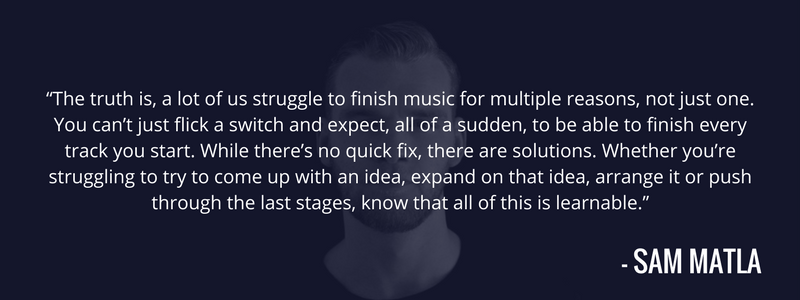
SOUND DESIGN
43. Sound design isn’t unique to synthesis
A lot of producer’s make the mistake of thinking that sound design is the same as synthesis. The truth is, sound design doesn’t always need to happen inside of a synth. Each plugin you use in your processing chains can drastically alter, change, manipulate, warp, or distort the sound you’ve created.
44. Read the manual.
I’m amazed at how few people do this, but try to read the manual to your synths and plugins. I know it sounds crazy but damn, those engineers are way smarter than me and you. I’ll leave this pretty open-ended because, well, the benefits of doing this are pretty damn endless!
45. Separate your sound design
Separate your sound design sessions from your composition sessions. This means it’s ok to designate one night or one hour of your life strictly to creating interesting, unique textures, tones, and timbres. Just make sure to label them and keep them organized so you can utilize those sounds when the moment is right.
46. Sound design with audio
Made a cool sound? Great. Now print it to audio, pitch, reverse, warp, distort, etc. and marvel at the amazingly different textures you’ll uncover by using audio.
47. Don’t forget about white noise
Seriously though, don’t forget about white noise. Using white noise can bring character, excitement & fullness to an otherwise dull sound. It isn’t solely meant for additional energy in drops, it can really wake up a synth patch.
48. Re-amplification
Ever heard of reamplification? Take some of your digital sounds, record them back into your DAW with a half-decent microphone, and boom - you just created an analog sound. Imperfections in the microphone, the speaker, or even the calibration of the room will create differences and artifacts to warm up or thicken your original sound.
To learn more about re-amplification and how to use it, click here.
49. Stop being so damn compliant
Let’s break some rules, shall we? Try using plugins that aren’t meant for those specific instruments. For example, try using a bass amp on a vocal, or a guitar pedal on a piano. Long story short: get weird.
50. Stop hating on presets
Presets are made by smart sound designers. Sound designers who, most likely, are much better than me and you. Use them. Manipulate them. Tweak them. Learn from them. Make them fit your track and reap the benefits. Bonus: this also saves a TON of time and can spark creativity + a direction you may not have gone had you been the one playing around with a synth from scratch.
51. Take off your synth’s effects
Contrary to what I just said, take off those damn synth FX! Unless the effect is somehow an integral part of the sound, remove it and use third-party reverbs, delays, choruses, distortions etc. for an incredible amount of additional control. Third party plugins almost always sound better than the effects baked into a synth.
52. Don’t forget about real instruments
Can we put down the synths once in a while? Use some real instruments. Record a guitar. Record a bass. Record your voice. Record a vocal. This stuff will all sound ridiculously unique and different compared to the majority of producers who are afraid to go the organic route.
53. Manipulate simple sounds
If something is clean and simple you can really maximize it. Having too much modulation or crazy timbres can sometimes clutter up your track.
54. Record stuff
Foley recorders are cheap... and a simple mic setup can lead to great things. It’s really easy to be unique when you record your own sounds. Think about it. If you record yourself banging a pot in your room, with your microphone, no one in the entire world has that same exact sample.
55. Do some live automation for a more “analogue” feel
Turn on “Write” automation mode, map a few synth parameters to knobs on your midi controller, press play and twist away. You get a more “human” movement to your instruments that you can with any automation you draw in.
56. Reverse engineer to inspire, not to copy
Reverse engineering sounds is a great way to learn how to make a sound from scratch. But just because you’ve imitated a popular sound, doesn’t mean you should automatically incorporate it into your music. Borrow what you’ve learned but manipulate it. Change it. Push some boundaries. Make it your own.
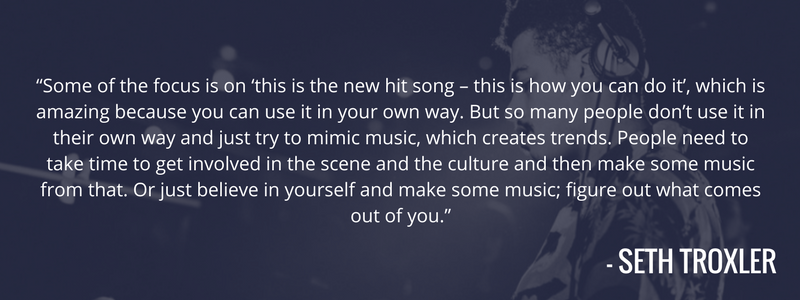
LAYERING
57. Layering isn’t only about sounding full
Layering really is the key to sounding professional because it allows you to not only sound full but also unique. This is a huge distinction. Next time you try stacking 5 sounds to create one chord, don’t just think “how can I make this big” but also think, “how can I make this unique?”
58. Amp envelope awareness
One of my favorite layering techniques is to make sure there is variation in the ADSR of each sound. If one sound has a fast attack and short release, layer another sound with a slow attack and super-long release. This way, each layer is constantly morphing, changing, and complimenting each other.
59. Layering is a form of sound design
Do yourself a favor and just avoid the masking conversation altogether by NOT picking similar sounds. In fact, pick wildly different sounds, with wildly different timbers to create something full, unique and head-turning.
60. Use sounds you can barely hear
Don’t underestimate the importance of atmospheric sounds. This can be some vinyl crackle. This can be a recording of children laughing amongst the subtle buzz of a village. It can be the constant hum of a big city. It can be bass drones. It can be tonal reverb. Just because it isn’t upfront in the mix, doesn’t mean it isn’t having a huge impact on your production as a whole.
61. Layering is about differences
If you layer different timbres they will fit much better together with minimal processing. Stacking the same thing on top of itself is no different than turning up that specific sound. Don’t do that.
62. Duplicating the same sound is not the answer
I get this question every time I run the Hyperbits Masterclass...
I'll tell you right now: duplicating the same sound, panning left and right, and barely changing each sound doesn’t create any stereo difference.
The definition of a stereo sound is that the left and right side are not the same, so accentuate that, obsess over that — find complimentary sounds that work well together but whatever you do, make sure to stop duplicating the same sound (unless you process each side of it very differently)
Learn more about The 8-Week Hyperbits Masterclass, the leading online music production school on the internet.
63. Think of arrangement in terms of layers
Layers don’t have to be made up of stacking sounds to contribute to one instrument. Think of leads, chords, bass, and drums all as layers in the mix that can add up to something special.
64. Less is more
More layers do NOT equal a better sound, nor will several mediocre layers add up to a great final sound. Make sure that each layer is playing a distinct purpose, and you rarely will need two layers playing similar roles.
65. Don’t be a afraid to mix acoustic and analog sounds
Sometimes a subtle detuned saw synth is a great top end layer to a piano, and sometimes the attack of the piano is a great snappy addition to some synth chords.
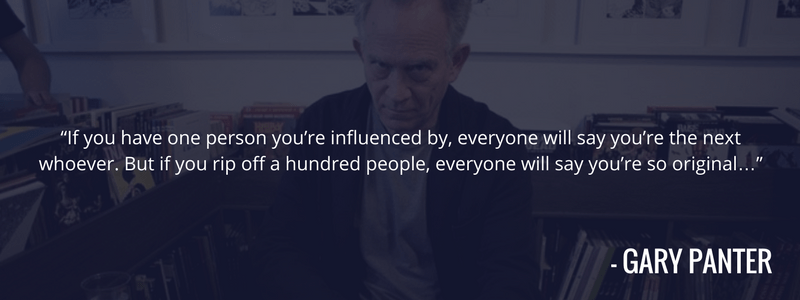
COMPOSITION
66. You can’t polish a turd
When it comes to sample choice, start with good sounds. And stop falling in love with the bad ones you’ve already selected. I know it’s easier said than done, but it’s an age-old expression for a reason, and you still, most certainly, can’t polish a turd.
67. Keep things it simple (at first)
Pop music is notoriously simple in composition. You don’t always need to set out to make complex music. If you start simple, there will be plenty of opportunities to create more interesting and advanced variations from where you started.
68. Transpose to the key of c
Not everyone who sets out to make electronic music can play the piano like Chopin. And that’s completely ok. If you’re struggling to come up with a melody, simply transpose your track to the key of C (or A minor) and boom - it’s tough to mess up. All the white notes are in key and you can jam away. If Madeon still does this, I promise you, there is absolutely no shame in doing this.
To learn how to compose memorable music, make sure to check out The Songwriting Matrix.
69. Play melodies with sound design
I’ve always been big fan of writing music solely with piano. I used to think “If it sounds good as a piano, it will sound good with most instruments.” And while that is mostly true, I was loosing out on all the melodies I could have been writing that would be inspired by some creative sound design. A dirty, filthy, distorted bass will naturally have different decay, octaves, tones, timbres, and energy and because of that, the melody you write WILL be very different.
70. Tweak existing midi
You can’t copyright a chord progression, so theoretically, you can go listen to your favorite Coldplay song, download the progression, change the timing and the key, and use it as the foundation to your next track. You can also do this with midis from sample packs. Or better yet, take those progressions, swap out some chords, chop them up, do some inversions, add some 7ths or 9ths and boom - you’ve got your entirely own progression.
71. Learn the essentials of music theory
If you don’t understand music theory at all, fear not - you technically don’t need it, but man, it will make your life so much easier as a music producer. The good news is that basic music theory isn’t THAT complicated. Sure, there is a learning curve like anything else, but in order to make western music, the concepts inside of music theory that you need to learn (all of which are taught in the Masterclass btw) are as follows:
• Minor vs. major chords
• Key signatures
• Nashville number system
• Inversions
• Borrowed chords
• Key changes
• Melodies: Runs, jumps, combos, rhythm & repetition
72. Referencing for composition
When it comes to composition or even arrangement, there is nothing wrong with using your inspirations as references. Think about it: if your favorite song in the moment uses a long, slow melody, paired with a short, quick, stabby bass, you should try the same. If your favorite song right now used a low-pass filter, reverse cymbal, and a wobbly riser to transition into the break, you should also do the same thing (with your own sounds of course). It is this attention to detail that allows you to learn the way your idols are actually thinking - do this enough, and you might actually make some music that competes with their competence and quality.
73. Don’t forget about silence
Silence is an instrument. Even some of the most aggressive and energetic music I listen to uses silence to create an additional impact. Furthermore, what really matters about melody is the silence between the notes, not the notes themselves. Silence also creates tension. It’s the removal of frequency space that makes the return to a full-frequency section so special (ie. the drop).
74. Pay attention to your mistakes
I’m still amazed how many times making a mistake has lead to an amazing idea. I call them happy accidents. Used the wrong note? Played the wrong sample? Duplicated the wrong measure? The list could go on and on, but at the end of the day, use your ears and stay open to the beautiful decisions mistakes can inspire.
75. Use HookTheory
Hook Theory is an amazing resource to see how popular songs are broken down. You can even download the MIDI files and tweak them.
76. Learn an instrument
Being able to jam out with a piano or guitar can really help in the composition stage. Spending as little as 30 min a night practicing can get you pretty far in a few months.
77. Steal, steal, steal, steal
Even if only to reiterate - steal, a lot. Hear some chords that you LOVE in another song? Recreate them, transpose them to a new key, maybe change one small thing, and now they’re yours.
To check out the ultimate ways you can steal like an artist, click here.
78. Create longer loops
Have an 8 bar chord progression? Make it 16 bars. Copy your 8 bar progression twice, and change one or two of the chords in the second 8 bars. Do this for your percussion, bass, etc, and your 8 bar loopy song will become a complex, ever-evolving composition with just a few small tweaks.
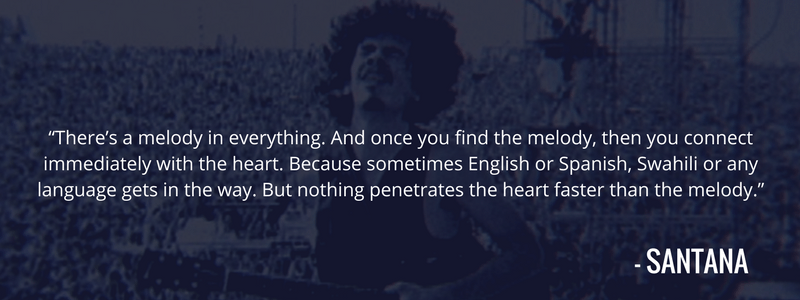
MIXING
79. The Haas Effect
If you don’t know what the Haas effect is, it’s time to do some Googling. In short, this effect tricks the brain into perceived width, despite only delaying your signal 10-35ms.
80. Mix at low volumes
Even an amateur mix sounds pretty good when played really loud. But if it sounds good quiet, it will sound amazing loud. Also, an added bonus: this also prevents ear fatigue.
81. Turn up the volume for bass
Contrary to what I just said, turn up the volume a bit when dealing with low end. It will allow you to hear frequency issues down there a lot easier.
82. Listen to your music in a lot of different places
Everyone is obsessed with acoustically treating their rooms, but I’ll tell you something that’s more valuable: listen to your music outside the studio. Listen in a car, listen in nice headphones, listen in shitty headphones, listen at a club, listen on your iPhone or laptop speakers, listen to your mix everywhere and make tiny adjustments to ensure the best listening experience across each device. That’s how you actually learn to mix in your room...
83. Avoid fatiguing your ears
Take a break every hour for at least 5-10 minutes when mixing a track. This helps re-calibrate your ears. It also stops you from getting lost in your own mix and not truly understanding what you’re listening to. I take this as far as getting up, and going outside of the studio I am in. Go to the kitchen, get outside, go anywhere other than your studio for a few minutes.
Also, when it comes to ear-training, there is no better tool than Sound Gym.
84. Take some time off
In order to truly gain a new perspective on what you’re working on, try taking a night off sometimes. Start fresh the next day. There is nothing more valuable than the perspective of taking an entire day (or even several days off).
85. Compression is overrated
I’ll say this time and time again but compression is seriously overrated. Of course, it has its use cases but think about this from a very simplistic perspective...
Compression is meant to tame transients (essentially make quiet stuff and loud stuff a bit more even). But the majority of electronic music doesn’t have enough dynamic content to even warrant using much compression. If anything, do the opposite of compression - instill dynamics and life and movement and transients BACK into your mix. Save the compressors for live performances and instruments like guitar solos, vocals, and that dope live-bongo recording you’ve got. Scope the vid below for more.
86. Be light with reverb
Too much reverb can really screw up your mix. Reverb should be just loud enough to hear, but not overwhelming. Same with delay. It should almost be inaudible (especially on vocals).
87. Saturation is king
Get comfortable with saturating sounds. One of the easiest ways to make something sound more full, alive and professional is to saturate it. Get comfortable with all the different flavors and types of saturation plugins out there.
To learn more about our top 20 favorite saturation plugins and exactly how we use them, click here.
88. Use a reference track to get your kick/bass relationship right
Throw a low pass filter on your master and A/B reference your kick and sub against the kick and sub of your reference track. This will help get your gain staging, sidechaining, and everything else in the low end sounding just right. And by the way, there is absolutely no room for error here. It has to be perfect.
To learn how to create the ultimate kick-bass relationship in your mixes, click here.
89. Contrast is key
If everything sounds HUGE, nothing will sound huge; if everything is super reverby, nothing will sound reverby. Bring out the best characteristics of the most important sounds, and take it easy on the less important things in order to let the main elements stand out.
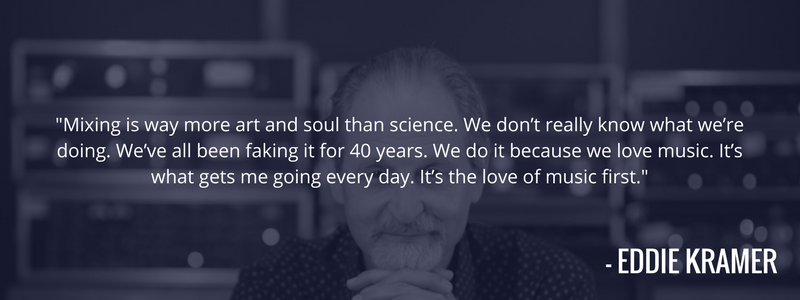
MASTERING
90. Always, always use a reference track
Mastering without a reference track is like the blind leading the blind. Pick some of your favorite artists and start paying attention to things like RMS or LUFs meters, overall dynamics, coloration and stereo width.
91. There’s nothing wrong with mastering your own track
Sure, a fresh pair of ears could be very useful, but it is unrealistic to expect to drop $50-100 (or more) every single time you need a master a track, especially when you’re just starting out. Learn some of the basics and avoid slapping an ozone preset and calling it a day.
92. Mastering is 90% about loudness
Assuming you have a half decent mixdown, the main purpose of your master is to simply bring it up to commercial volumes. This can be done with 2-3 plugins at first. The Sonnox Inflator, a nice SSL compressor, and a limiter. Anything beyond that is only necessary if you’re mastering other people’s music and don’t have access to all their stems.
93. Mastering is not a band-aid. Don’t over do it.
Mastering isn’t meant to correct too many problems in your mix, it’s meant to accentuate, highlight and make what’s already there more prominent. If you think a master will solve your problems, it’s time to reassess.
94. The mixdown will always be more important
On a similar note, while mastering is super important, it will never be anywhere near as important as the actual mixdown. Focus on getting proper levels, balancing your mix, creating amazing sounds, polishing your mix, writing a great composition, and if you can do that stuff, you’re 95% of the way there. To be honest, mastering is fairly easy once you know what you’re doing.
95. Stem mastering is always better than a one-track master
The benefits of stem mastering are many:
• The ability to isolate and adjust groups of your track at will like drum tops, synth leads, top bass, sub bass, etc.
• Can lead to a louder, cleaner more dynamic result
• Starting over with a fresh, CPU-plenty project
• You can see (and hear) into the future which will prepare your mix for the final master
At the end of the day, stem mastering does not extend itself to a full mixdown, but allows the mastering engineer more targeted corrections and enhancement to the equalization, dynamics, depth and balance of the instruments from the mixdown. This is good.
96. Subtle compression
When setting mastering compression, aim for soft settings (slow attack, fast release) and don’t think you need more than 1-2 dBs of gain reduction.
97. The Sonnox Inflator
There is simply no other plugin in the market that does what this thing does. If you are having trouble achieving loudness and competing with your favorite artists, start with the inflator. Pair that with reductive EQ and some solid sound choice and composition decisions and you’ll be well on your way to a commercially loud master.
98. Use Mid-side EQ to tighten your low end
If you are mastering someone’s track and the low-end is super stereo, get in there with mid-side EQ and cut the lows below 150-200hz. This will clean up your mix and result in a tighter, punchier track.
99. Listen to your final master as an MP3
Converting your tracks to MP3 will almost always result in clipping if you have a ceiling of around -0.2 to -0.3. Make sure you aren’t sacrificing too much distortion for loudness.
100. A/B at the same volume
When you add plugins to your mastering chain make sure to test them on and off at the same volume. Having something get louder usually sounds better, but isn’t always the best thing for the mix. If your plugin has an auto-gain feature, make sure to use it. This will help your ears hone in on the effect versus the change in volume.
101. Try some mastering reverb
Sometimes a bit of reverb can act like a gel - adding a plate reverb with 1-2% wetness can help glue your track together, and create a beautiful shine and gloss across the entire project.
102. Don't stress too much
If you can't get the loudness you want after you have tried everything, take a break and don't stress. Sometimes sound choice and composition make it impossible to completely match a reference. If this happens to you, grab another reference track and see if you can beat that one.
103. You can always let someone else take a stab
Sometimes having a fresh set of ears can really help get your master get to where it needs to be.
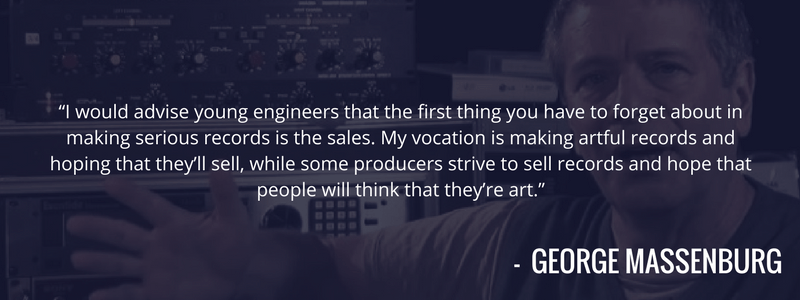
Final Thoughts
Wow. So that’s what it feels like to write almost 8,000 words and gather 103 music production tips from the depths of my brain.
If I could add only one more thing, it would be this: There is always more to learn. Don’t get overwhelmed by that. In fact, you’ll most likely never feel like an "expert" anyway. Hell, if I'm being completely honest, I still don’t and I teach this stuff.
It’s part of the struggle that is music production. Embrace it. Love it. Accept it. And I promise that good things will come.
So, what did I leave out? Have any tips to add to these 103? Which ones resonated most with you? <3
These Might Also Interest You:
20 Lessons in Music Production I Wish I Knew When I Started



